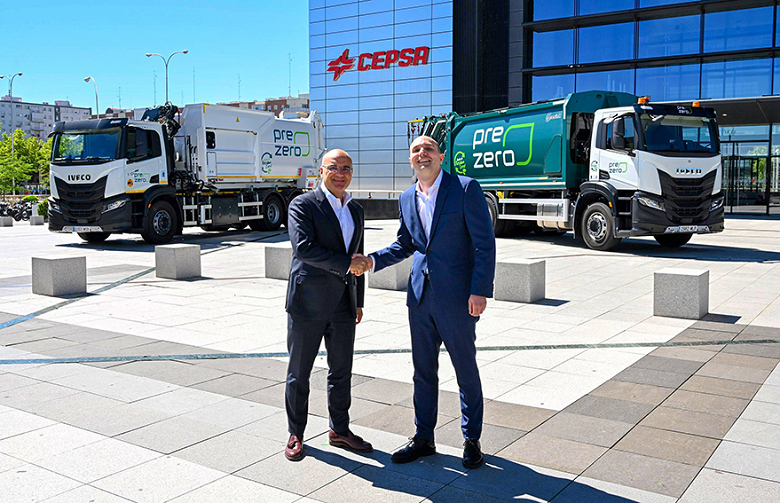Prezero partners with Cepsa to build organic waste biomethane plants in Spain

The first one will be located in Huelva and will have a capacity of up to 100 gigawatt hours.
PreZero Spain and Cepsa have joined in a strategic alliance to promote the joint development of biomethane plants using organic waste. The German company Schwarz Group, owner of the Lidl supermarkets, will in addition supply this renewable gas to the energy company and will use it to decarbonise its land fleet in Spain and Portugal. The energy company will support it in this task with the supply of biofuels and electric recharging.
Both companies will recover waste in their projects for the production of second-generation biofuels and other circular chemicals, having already started the development of their first biomethane plant, which will be located in the province of Huelva. With an annual capacity of up to 100 gigawatt hours, it will be one of the largest renewable energy installations in Spain.
Energy park
This first joint project will be built at the Cepsa energy park in Palos de la Frontera (Huelva), which, like the one in San Roque (Cádiz), is undergoing an ambitious transition to renewable energy. In addition to the future biomethane plant, Cepsa is building the largest 2G biofuels plant in southern Europe, which will produce sustainable aviation fuel (SAF) and renewable diesel.
The biomethane produced at the new facility will make it possible to produce green hydrogen and other renewable fuels. Among other things, it will be able to supply raw materials to the green hydrogen plant that will also be built in the Huelva park, with a capacity of one gigawatt.
Preferential access
In 2023, PreZero produced 75% of the biomethane generated in Spain. Thanks to the agreement, Cepsa will be able to obtain it preferentially in those projects that the new partners identify as strategic. The energy company will also be able to access the biogenic CO2 that PreZero Spain extracts from its biomethane plants, and to use it in the production of synthetic fuels.
Cepsa will produce second-generation biofuels from biomethane obtained from the recovery of used cooking oils and other organic waste by PreZero. It also plans to develop circular chemicals from plastic waste treated by the Schwarz Group company. In this case, the two companies will look at the joint development of pyrolysis plants to process non-recyclable plastic waste.
Great potential
PreZero CEO in Spain and Portugal, Gonzalo Cañete, explains that this agreement arises "from the great potential that exists in Spain for the development of biomethane as a renewably sourced natural gas, as well as the need to standardise with other EU countries in meeting the goals of circular economy and decarbonisation. To do this, and alongside public-private partnerships, we need to enhance cooperation between private companies, as demonstrated by the promising alliance we are announcing today."
Carlos Barrasa, Head of Commercial & Clean Energies at Cepsa, said that the alliance "will enable us to expand access to circular raw materials for the production of different energies that facilitate the energy transition, such as green hydrogen or second-generation biofuels. Together, we will promote a sustainable alternative to the treatment of urban and industrial waste, recovering it for the production of renewable energy, and thus promoting a circular and decarbonised economy."
Photo: Cepsa




